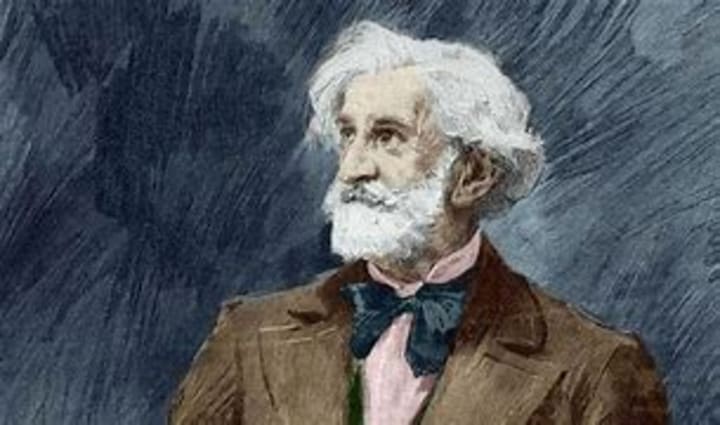
Giuseppe Verdi was born near Busseto, Italy, in October 1813 and died in Milan in January 1901. He wrote more than 30 operas, Aida being one of the most celebrated. The book was written by Antonio Ghislanzoni, and the opera was commissioned by the Khedive of Egypt. The first production was in Cairo on 24 December 1871 and it has been an operatic standard ever since at opera houses all over the world. However, some of the most remarkable performances have been in the open air with the Pyramids as the backdrop, which would seem to be the most appropriate setting of all.

Act 1, Scene 1. The Palace of the Pharaoh of Egypt, Memphis
Rhadames, a warrior, is delighted to learn that he has been chosen to lead the army against the Ethiopian enemy, because he hopes that he will thus be able to win Aida, a slave girl, as his prize for victory in battle. However, the king's daughter, Amneris, has set her mark on Rhadames, and his coldness towards her confirms her suspicions that he loves someone else. When the king and his court enter, with Aida in attendance, everyone rejoices at the news of Rhadames's command, with one exception. Aida is the daughter of the Ethiopian king, Amonasro, and she fears that either her lover or her father will be killed in battle.
Scene 2. The Temple of Ptah
Nothing much happens as Rhadames's weapons are consecrated for battle.
Act 2, Scene 1. The Quarters of Princess Amneris
The Princess has learned that Rhadames has been victorious and her maidservants dress her to impress the returning hero. Aida enters and Amneris tells her, falsely, that Rhadames is dead. The display of grief shown by Aida is enough to show that Rhadames is more than just a warrior hero to her. What a cow that Amneris is.

Scene 2. Thebes
Pharaoh and his court receive triumphant Rhadames, who is asked to name his reward. Also present are the captured Ethiopians, including Aida's father, King Amonasro, although he has disguised his rank. The crowd call for the prisoners to be killed, but Rhadames asks that, as his reward, their lives be spared. Pharaoh agrees, and gives him the hand of Amneris for good measure, plus naming Rhadames as his own successor as Pharaoh.
Act 3. By the River Nile
Amneris, on the night before her marriage to Rhadames, has come to pay her vows to the goddess Isis. Aida has followed her, in the hope of seeing Rhadames for the last time. However, she is found by her father, who urges her to act as a spy and betray the movements of the Egyptian army. Aida refuses. (The plot thickens). However, Rhadames turns up and, as King Amonasro hides, the former tells Aida what the latter wanted to know. Amonasro now presents himself to Rhadames, out of disguise, and urges the warrior to change sides and support Ethiopia, for the reward of the hand of Aida. He should have known that that was never going to work. Things are made worse when Amneris now appears and denounces everyone else. Rhadames urges Aida and her father to escape, but he himself stays behind to be arrested.
Act 4. Scene 1. In the Royal Palace
Amneris has had second thoughts, possibly having worked out that, if you want to get your man, having him arrested for treason is not the best plan. She tells Rhadames that King Amonasro has been killed, but that Aida is alive. The deal is that if Rhadames agrees to forget about Aida, she, Amneris that is, will obtain a pardon from the Pharaoh. Oh dear, what a dilemma. As might be expected, Rhadames will have nothing to do with it, and Amneris is furious with him. If she can't have her man, nobody else can, and Rhadames is thus condemned to death.
Scene 2. The Temple, with the crypt below
Rhadames is condemned to be bricked up alive, but before the vault is closed Aida joins him to share his fate. As they sing a last farewell, Amneris can be seen in the Temple above. Once again she has repented of her actions, but this time it is too late to make a difference. What was that about Hell having no fury like a woman scorned?

About the Creator
John Welford
I am a retired librarian, having spent most of my career in academic and industrial libraries.
I write on a number of subjects and also write stories as a member of the "Hinckley Scribblers".






Comments
There are no comments for this story
Be the first to respond and start the conversation.